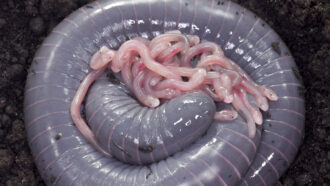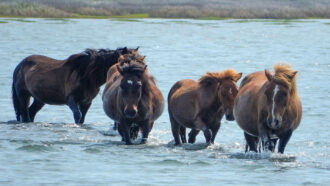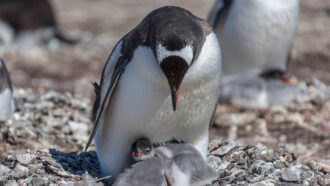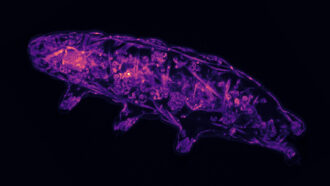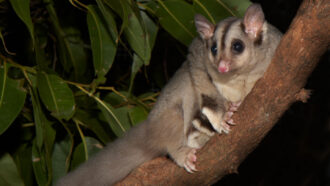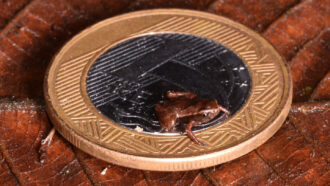Another buzz for bees
Blooms are more memorable when their nectar contains caffeine
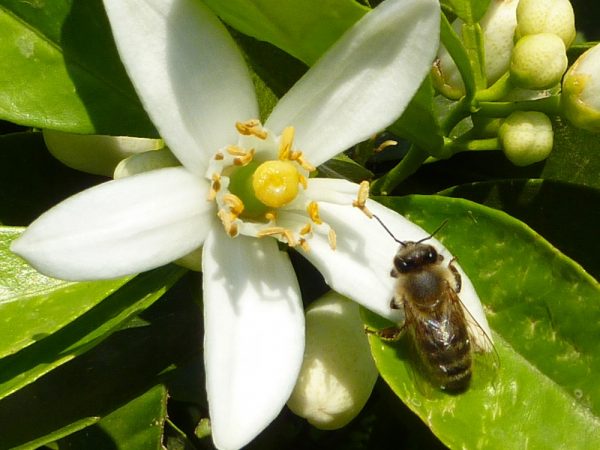
Coffee drinkers aren’t the only ones getting a brain boost from a little caffeine. The drug improves honeybees’ long-term memory, a new study shows. Bees are more likely to remember flowers that had caffeine in their nectar.
“This is the first instance to show that something we use as a drug is also a drug ecologically,” Geraldine Wright told Science News. By ecologically, she means wildlife also get a jolt from caffeine. Wright, who led the new study, investigates animal brains and behavior at Newcastle University in England.
Many plants naturally contain caffeine in their leaves. It tastes bitter, so hungry animals tend to avoid eating plants that contain it. Caffeine will often show up in a plant’s nectar too. This sweet liquid attracts passing bees, who sip it from the flowers.
Wright and her coworkers measured caffeine levels in the flower nectar of four common citrus plants and three types of coffee plants. Caffeine levels in nectar were low enough that bees didn’t seem to mind any bitter taste the drug might impart. Using those measurements, the scientists then crafted their own sweet liquids — fake nectars. Some contained caffeine, others didn’t. Next, the team trained bees to link the artificial nectars with a flowery odor. Some bees got a caffeine-laced nectar after smelling the flower. The rest got non-caffeinated nectar after a floral whiff.
A day later, the bees underwent tests. Those that had sipped the nectar with caffeine were more likely to remember that flowery smells meant a sugary treat. A lot better. Those bees were more likely to stick out their tongue when they smelled a floral scent. This showed they remembered that scent signaled a treat. Bees that had gotten a decaf nectar were more likely to keep their tongues in their mouths when they sniffed the scent. So these bees didn’t remember the connection as well. After three days, the memory held: Twice as many of the bees that had gotten caffeine associated a flower’s smell with nectar as did those who had gotten the decaf nectar.
Caffeine may turn the bees into repeat customers. Once they consume nectar with caffeine, bees can more easily remember the flower that supplied the sweet treat — and go back for more. Bees help flowers reproduce by carrying pollen from bloom to bloom. So caffeinated nectar may give some plants an advantage.
Power Words
caffeine A natural chemical that stimulates the brain and the rest of the central nervous system. Tea and coffee plants are especially rich sources.
stimulant A substance that raises activity levels in the body’s system of nerves, especially those in the brain.
nectar A sugary fluid secreted by plants, especially within flowers. It encourages pollination by insects and other animals. Bees collect it to make honey.
pollinate To transport male reproductive cells — pollen — to female parts of a flower. This allows fertilization, the first step in reproduction.
neuroscience Science that deals with the structure or function of the nervous system and brain.
